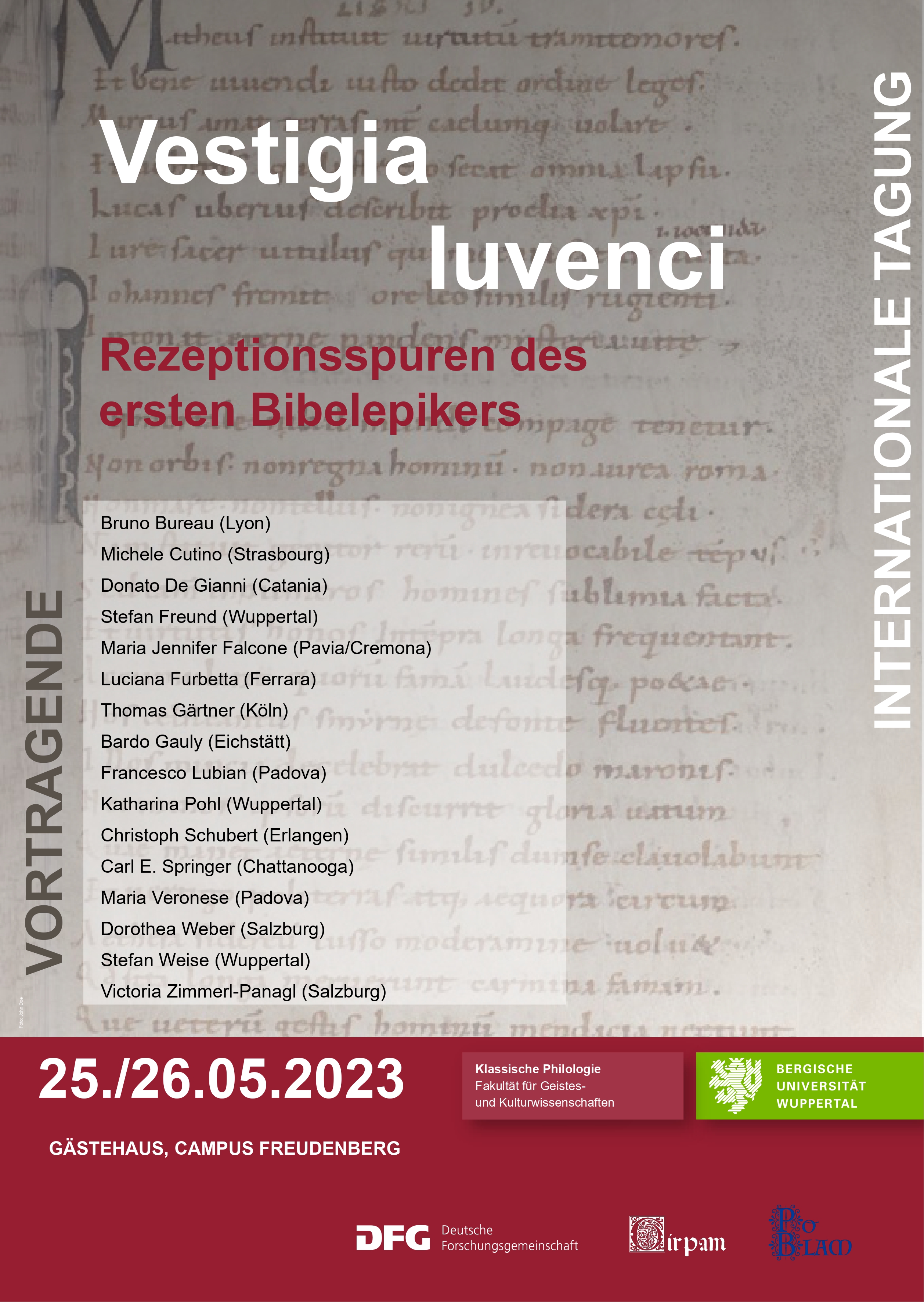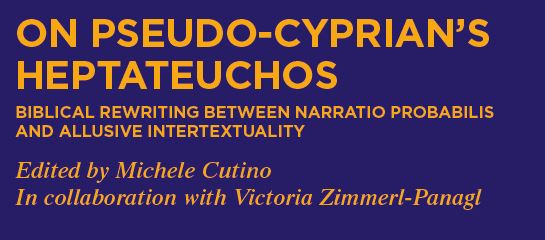Flux RSS - actualités Girpam
Abonnement au flux des actualités du GirpamSéminaire : Les Espaces de la poésie latine tardive
5 mai 2023
Voir le programme ici
Responsables scientifiques : Florence Garambois-Vasquez, Université Jean Monnet, Saint-Étienne (HISOMA, UMR 5189). Gaëlle Herbert de la Portbarré-Viard, Université d’Aix-Marseille (CPAF/TDMAM, UMR 72927)
Accès en distanciel :
- Rejoindre la réunion à partir du lien de la réunion
https://ujmstetienne.webex.com/ujmstetienne/j.php?MTID=ma08fed9b2222e95be1836919bf3dfc9a - Rejoindre la réunion par le numéro de la réunion
Numéro de la réunion (code d’accès) : 2730 575 0131
Mot de passe de la réunion : mjPvH35hW6G
En cas de problème de connexion, n’hésitez pas à contacter l’une des organisatrices (F. Garambois : 0636520322 ou Gaëlle Viard : 06 87 55 82 75)
Programme de l'école d'été « Réécritures de la Bible en vers dans l'Occident latin (IVe-XIVe s.) : typologies, intertextualité et contextes »
Voir le site associé ici
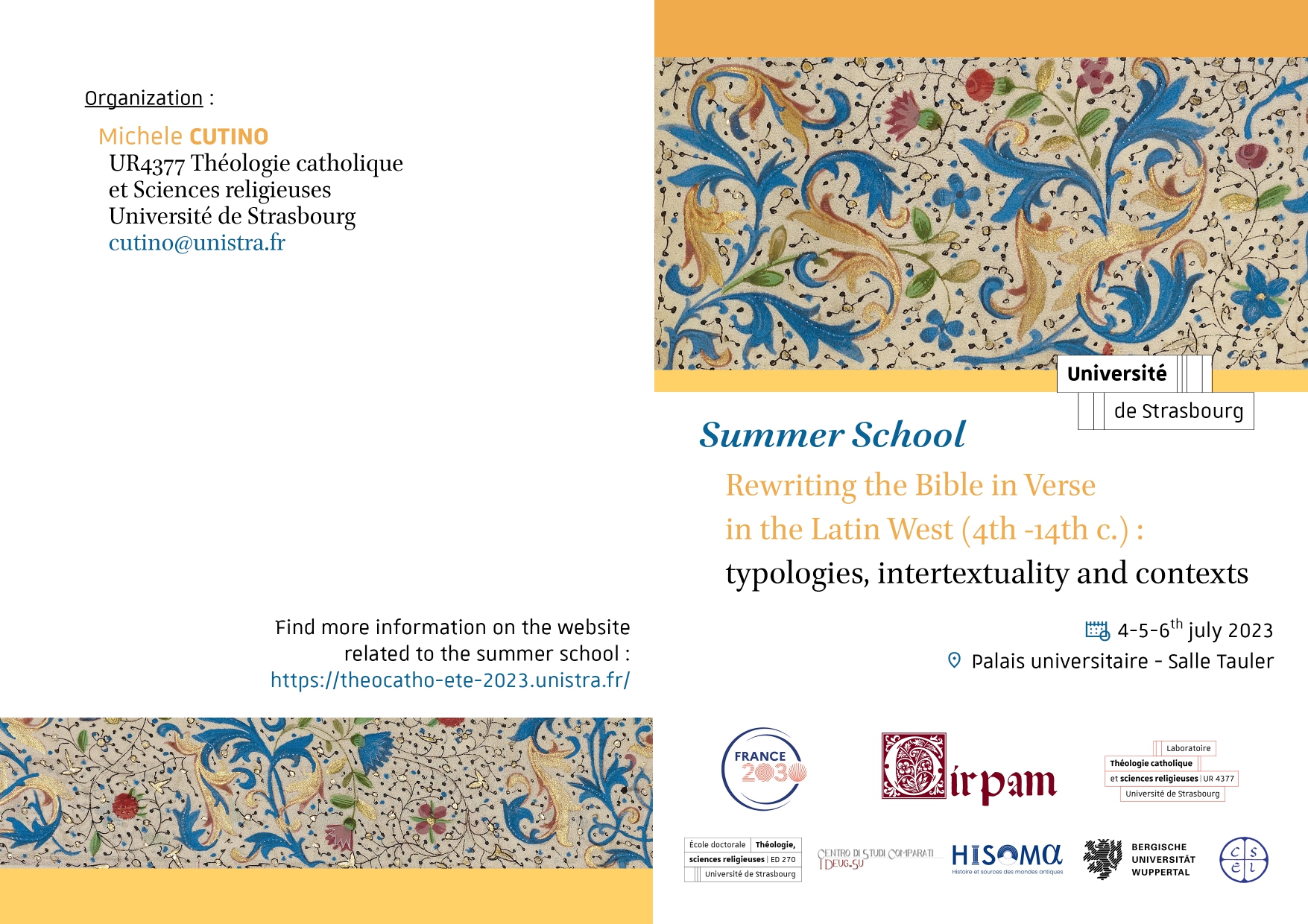
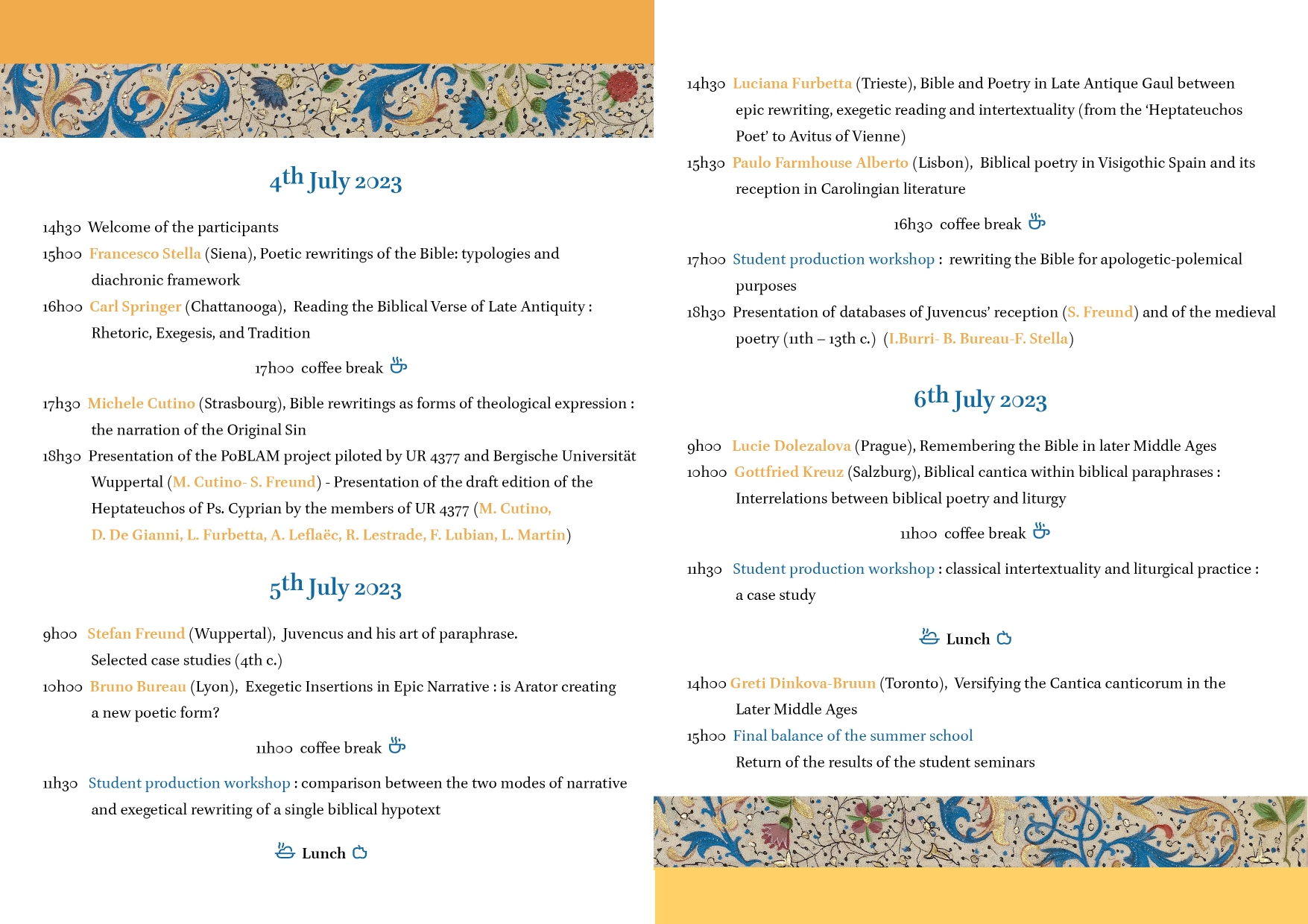
Colloque international : Croisements et interférences entre grammaire et rhétorique dans la littérature latine de l'Antiquité tardive
Convegno internazionale :
Incroci e interferenze tra grammatica e retorica nella letteratura latina di età tardoantica
Università degli Studi di Milano, Sala Malliani, 25-26 maggio 2023
Organizzatori:
Laetitia Ciccolini (Sorbonne Université, Paris)
Amedeo A. Raschieri (Università degli Studi di Milano)
Per informazioni:
Per partecipare a distanza occorre registrarsi qui:
Giovedì 25 maggio 2023 (Sessione 1)
Venerdì 26 maggio 2023 (Sessione 2)
Voir le programme ici
Colloque international : Vestigia Iuventi. Traces de la réception du premier poète biblique
Voir le programme et le plan d'accès.
Le colloque peut être suivit à distance via Zoom :
ID: 977 51252088
Link: https://uni-wupper- tal.zoom.us/j/97751252088?pwd=cmRRQ2dlb2w2WXlCbFE3U29Bb0JZdz09
code: Iuvencus23
Nouvelle Publication : Dictionnaire de l'épigramme littéraire dans l'Antiquité grecque et romaine
Publication dirigée par Céline Urlacher-Becht
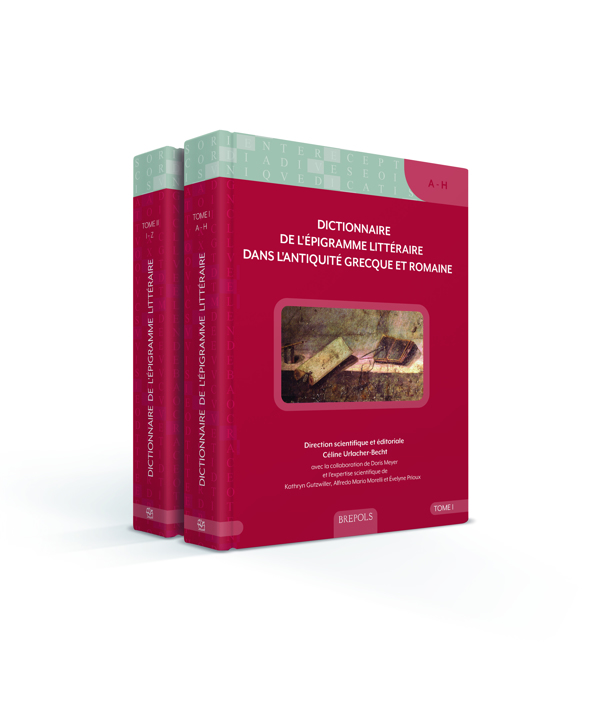
Ce dictionnaire offre une somme inédite sur les épigrammatistes grecs et latins du IVe siècle av. J.-C. au milieu du VIIe siècle apr. J.-C., ainsi que sur les sous-genres, les styles et les thèmes qu’ils ont développés.
Pour plus d'informations voir sur le site de l'éditeur Brepols.
Ecole d'été de Strasbourg 2023 : Réécritures de la Bible en vers dans l'Occident latin
Pour participer à l'école d'été, merci de vous inscrire en envoyant une lettre de motivation à
Voir le site associé.
Nouvelle Publication : On Pseudo-Cyprian's Heptateuchos
Though the Heptateuchos is possibly the most organic attempt at poetic rewriting of the Old Testament, attributed to "Cyprian the Gaul" by R. Peiper, the latest editor of the text in CSEL 23 (1891), we do not have a comprehensive analysis of this poem yet that can provide a clear grasp of the poem’s compositional logic, show which of its biblical model’s content was used, and expound the context and purpose of its versification. It is apparent that in many respects the Heptateuchos is still profoundly unknown. For this reason the UR 4377 of Catholic Theology and Religious Sciences of the University of Strasbourg, notably its ERCAM ("Équipe de recherches sur le christianisme antique et médiéval"), with its statutory members and its associate members, is engaged in the publication of a new critical edition of each of the seven books of the anonymous poem of uncertain date, the Heptateuchos, also providing an exhaustive commentary. The essays collected in this volume represent a preliminary work for the upcoming edition and commentary planned by the members of UR 4377 in Strasbourg. Above all, they show how the anonymous author was interested in safeguarding the criterion of the narratio probabilis in the poem, through probable references to Judeo-Hellenistic literature and by refining the exegetical reading of the text with references to classical and Christian poetry.
Voir la couverture ici.
Ruser avec l'information : fake news et théories du complot de l'Antiquité à nos jours
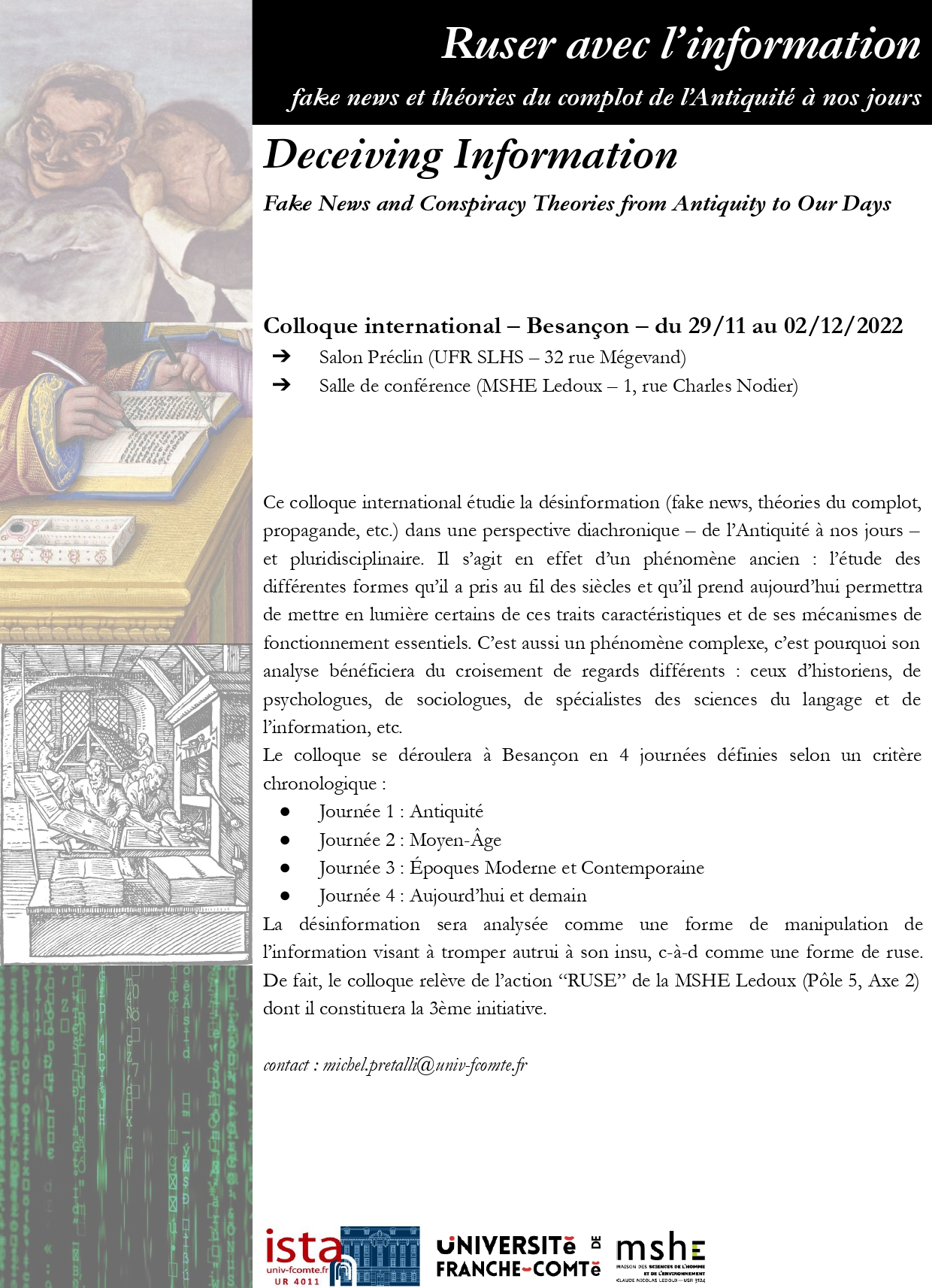
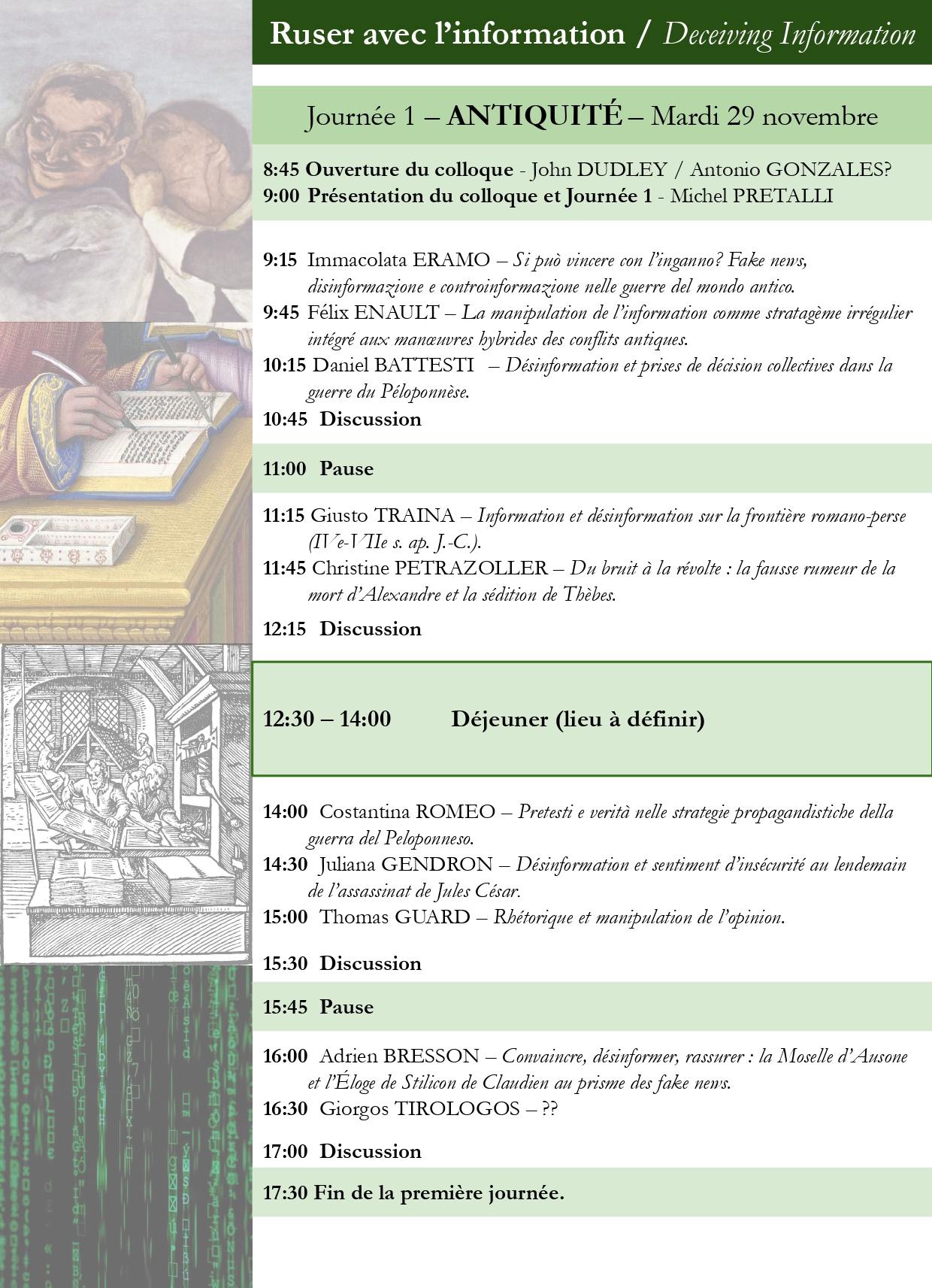
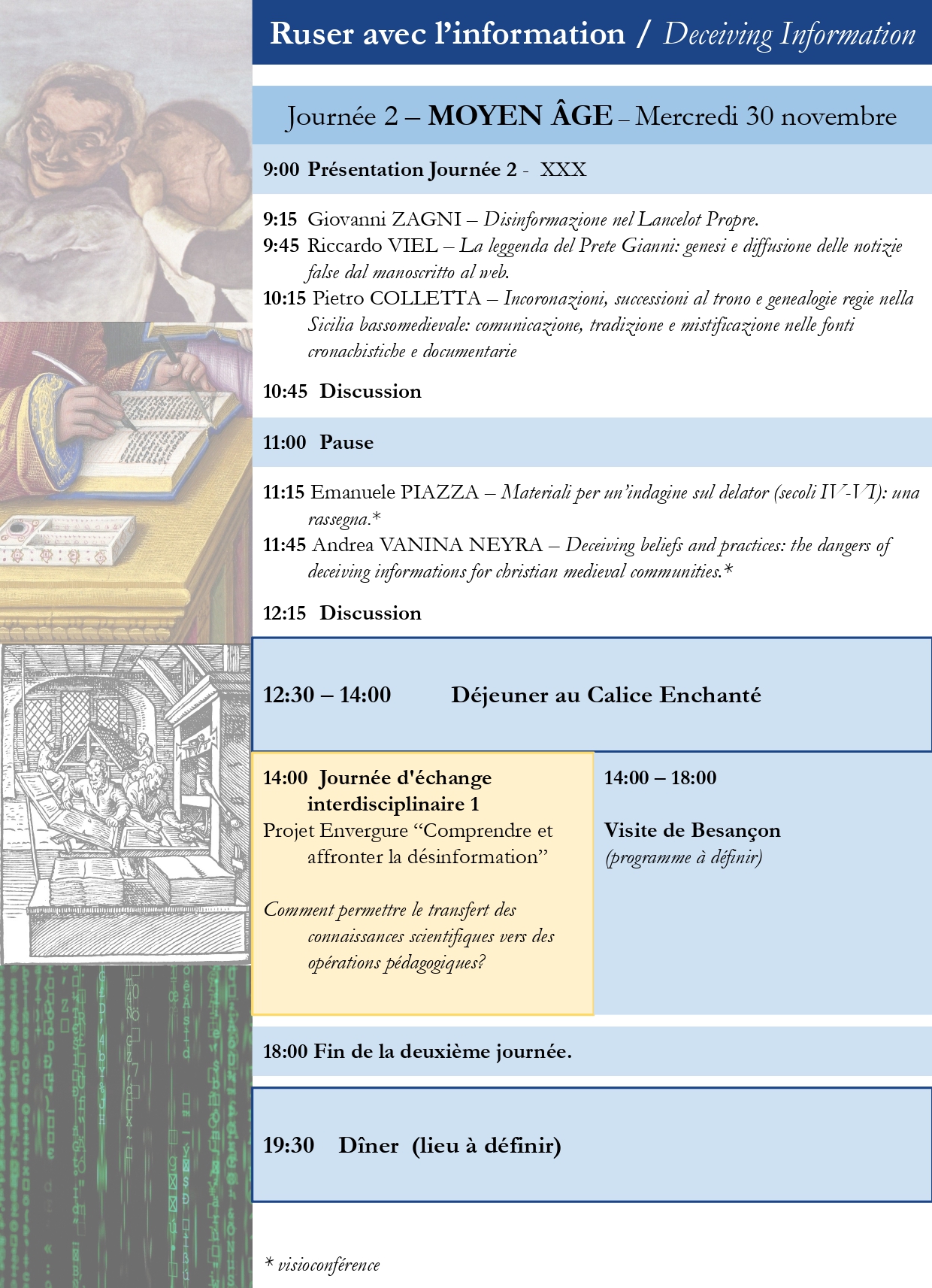
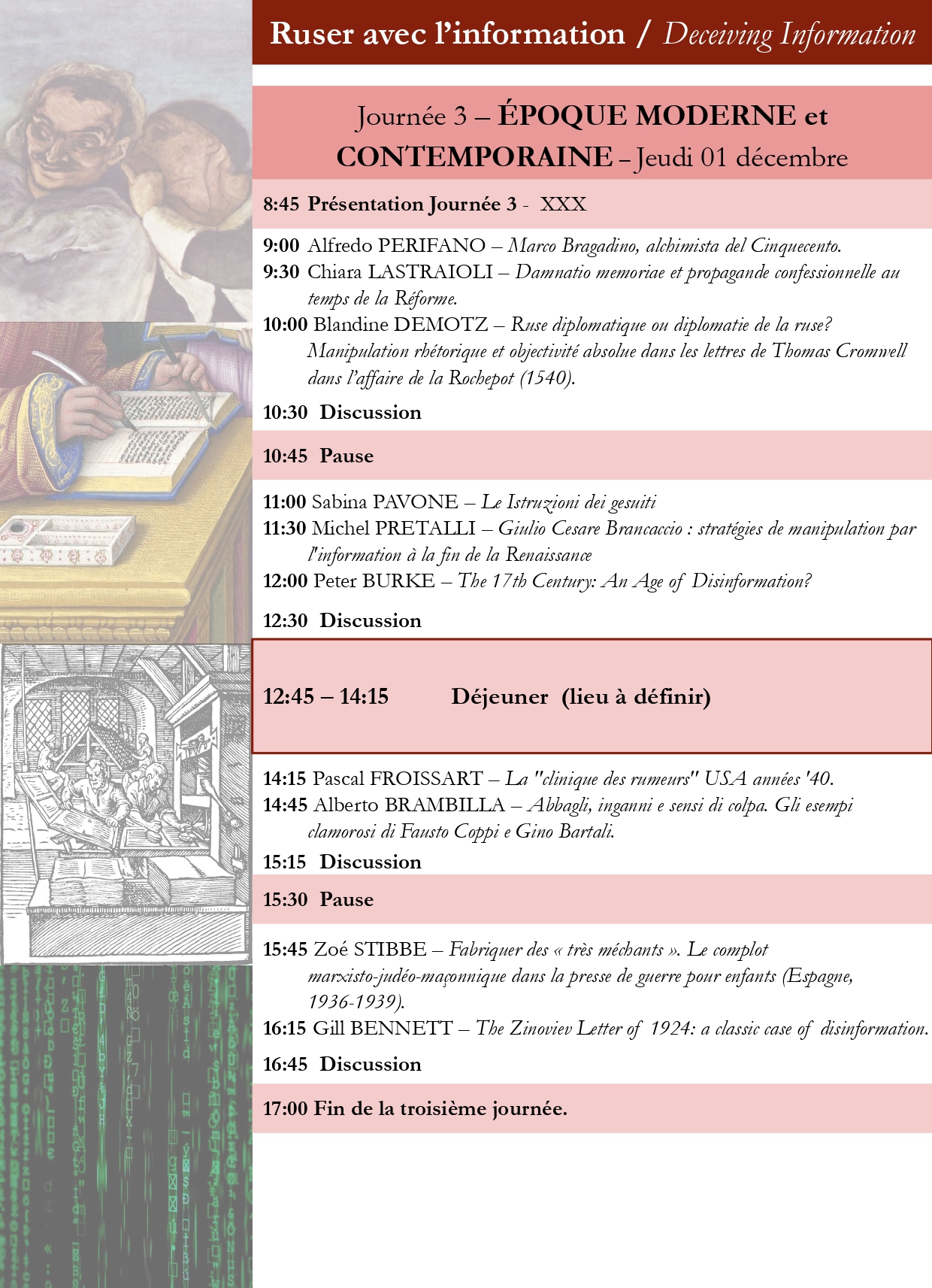
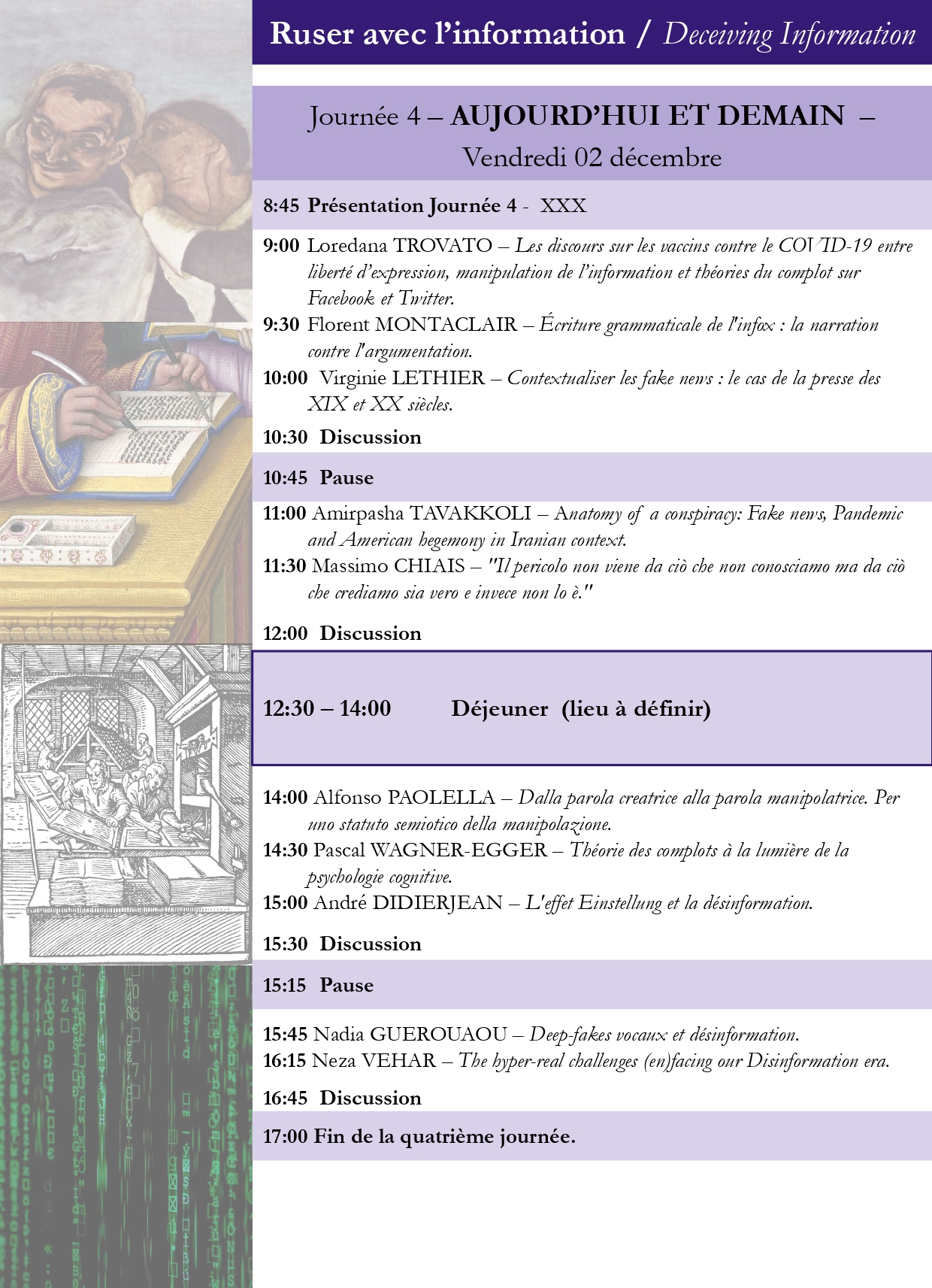
VI Honor : commentaires sur le panégyrique de Claudien pour le sixième consulat d'Honorius
![]() Actuellement au programme de l'agrégation de Lettres Classiques, les commentaires sur le Panégyrique de Claudien pour le sixième consulat d'Honorius sont disponibles sur le site de VI Honor. Ces commentaires sont issus d'une session, à Lyon en 2015, qui avait réuni des spécialistes de Claude autour de l'oeuvre.
Actuellement au programme de l'agrégation de Lettres Classiques, les commentaires sur le Panégyrique de Claudien pour le sixième consulat d'Honorius sont disponibles sur le site de VI Honor. Ces commentaires sont issus d'une session, à Lyon en 2015, qui avait réuni des spécialistes de Claude autour de l'oeuvre.
Colloque: "L'héroïsme épique dans l'Antiquité tardive"
Members of GIRPAM are very welcome to join us in this hybrid workshop.
The full programme can be viewed here: Detailed programme
To receive the link for attendance via Zoom, please fill in this form: Registration form
For any further queries, please contact me at
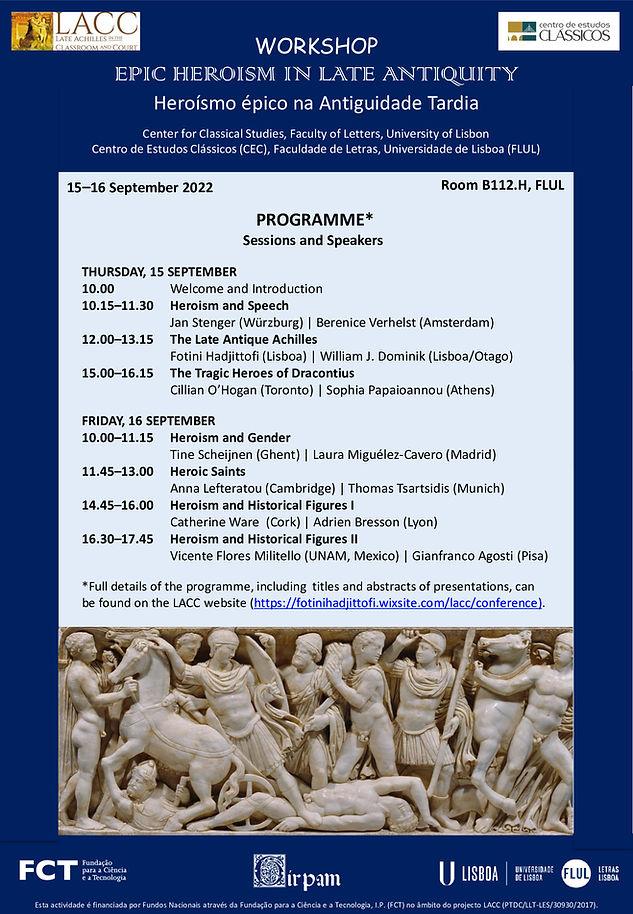
Table ronde
Table ronde autour de la poésie latine chrétienne
Jeudi 27 octobre 2022 de 14 h à 17 h, Université de Strasbourg 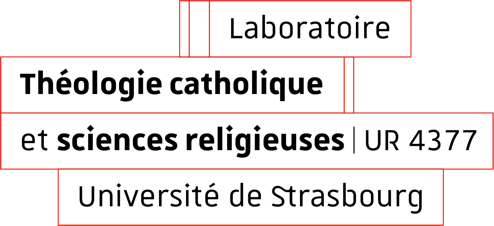
Contact : Frédéric Chapot,
À l’occasion de la parution de deux livres sur la poésie latine chrétienne dans la Collection des études augustiniennes (Institut d’études augustiniennes, Paris) :
- Paul-Augustin DEPROOST, In melius. Études sur la poésie des chrétiens latins. Paris, Institut d’études augustiniennes, 2022, EAA 211
- Nicole HECQUET-NOTI, Dictum est paupere uersu. La poétique d’Avit de Vienne entre épopée et prédication : étude littéraire du De spiritalis historiae gestis, Paris, Institut d’études augustiniennes, 2022, EAA, 207
Voir le programme ici.
Vorschläge für Beiträge
Scio me tibi grates inmodicas debere : Dank und Dankesgaben in spätantiker und mittelalterlicher Dichtung sowie umgebender Literatur
Doktorandenkolloquium am 09./10.09.2022 an der Bergischen Universität Wuppertal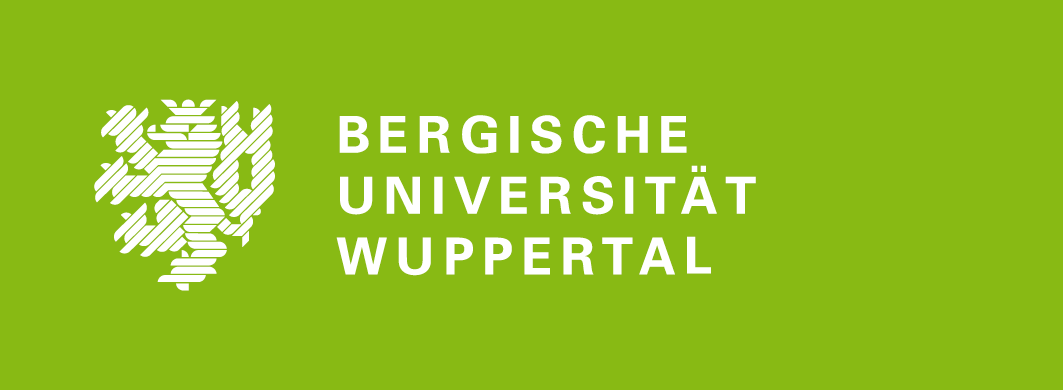
Siehe die Beschreibung hier.
Wir erbitten Vorschläge für Beiträge (ca. 20) mit einem kurzen Abstract (max. 500 Wörter) und Anmeldungen zur Teilnahme bis zum 01.07.2022 an Alina Hund (
Call for Papers
Anonyme Formen der Frömmigkeit in der christlichen lateinischen Dichtung von ihren Anfängen bis ins 7. Jahrhundert
Ort: Université de Haute-Alsace, Mulhouse 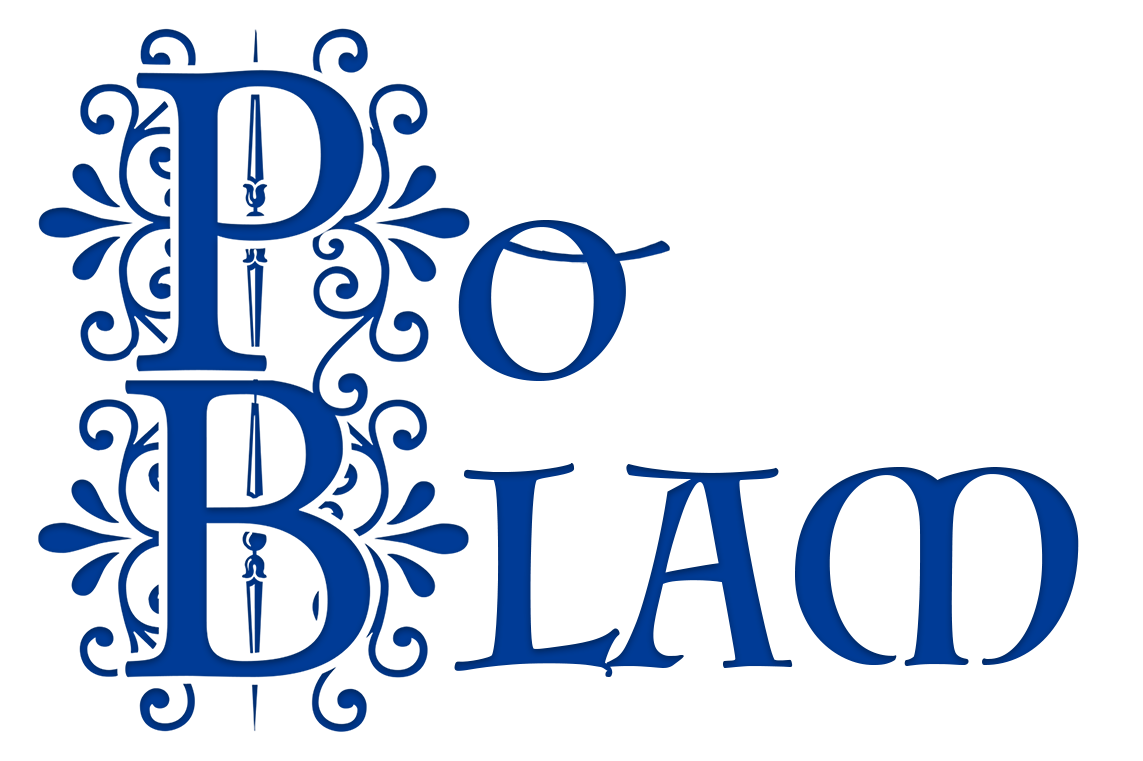
Termin: 19.-21. Dezember 2023
Organisation: Céline Urlacher-Becht und Stefan Freund
Die Beitragsvorschläge (Titel und Kurzzusammenfassung, ca. 5-15 Zeilen) sind bis zum 30. Oktober 2022 einzureichen bei den Organisator*innen des Kolloquiums : Céline Urlacher-Becht :
Siehe die Beschreibung hier.
Deutsch-französisches Kolloquium im Rahmen des ANR-DFG-Projekts PoBLAM
Appel à candidatures

As part of the activities planned in the program of the Gutenberg Chair 2021 project of Francesco Stella «Biblical Latin poetry and the text/image relationship», the UR 4377 of Catholic Theology and Religious Sciences is launching a call for applications for 4 residential grants, each amounting to 300 euros, in order to encourage the participation of young researchers in the conference «Versus ad picturas. Text/image relation in Greek, Latin and Arabic poetry between Late Antiquity and the Middle Ages»– program attached – which will take place in Strasbourg from September 28 to 30, 2022, so closing the activities of the Chair.
All interested researchers, especially masters, Ph.D. students, Ph.D., whose research focuses in particular on Latin and Greek literature from Late antiquity and the middle ages, are invited to apply for this scholarship by sending a cover letter, accompanied by an updated CV before July 31, 2022 to ms Ilaria Ponti, head of the conference organization secretariat:






